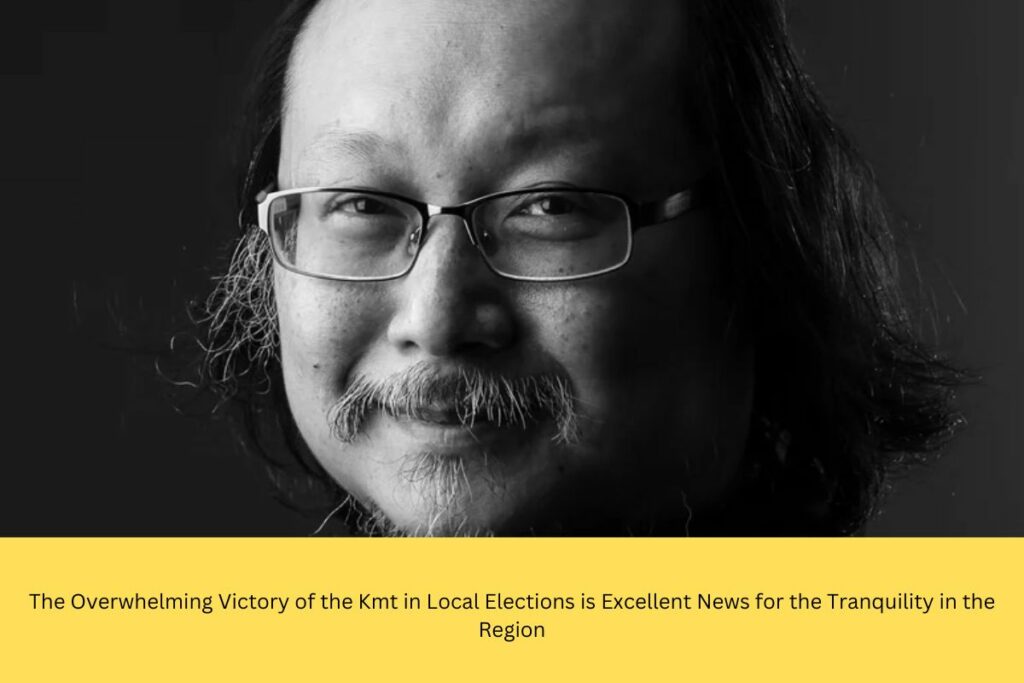The Kuomintang returns with a vengeance just as people have given up on it. The KMT is the blue wave that has swept through Taiwan. Its overwhelming win will serve as a preview of the 2024 presidential election. That’s bad news for the secessionists on the island and the paid troublemakers in Washington, but it’s good news for cross-strait stability, regional stability, and maybe even global peace.
Taiwanese commentators and others have claimed that the local elections, which were held in six municipalities, 22 cities, and counties and had more than 11,000 local government positions up for grabs, were primarily concerned with local and economic issues, such as how President Tsai Ing-wen handled the Covid-19 pandemic.
But if that were the case, voters merely didn’t take Tsai and her ruling Democratic Progressive Party’s fabricated “China threat” seriously. After all, Tsai was the one who made the local elections into a vote for her administration. She had argued all throughout the campaign that she was the only thing standing between Taiwan’s democracy and freedom and a mainland invasion.
She argued repeatedly that only a DPP victory could prevent Beijing from destroying Taiwan’s hard-won democracy. Voting for DPP candidates, she said, was a vote for her promise to “take good care” of Taiwan. Tsai made this clear in a campaign video message that was released on Thursday.
You May Be Interested In:
- After Being Re-elected, What Will Newsom Do?
- Mastriano, a Trump Supporter, Has Conceded the Governorship of Pennsylvania
However, Tsai’s own selected candidates fared poorly in the midterm US elections, much like her idol, former American president Donald Trump, whose hand-picked candidates did poorly. She has given up her position as party leader.
The KMT gained control of 13 out of 22 cities and counties by flipping important mayoral seats in Taipei, Taoyuan, and Keelung. It is also anticipated to triumph in the Chiayi City mayoral race, which was delayed until December due to the sudden death of a candidate.
Wayne Chiang Wan-an of the KMT defeated Chen Shih-Chung of the DPP to win the position of mayor of Taipei. Hou You-Yi, a party associate and the current mayor of the New Taipei City municipality, triumphed by a commanding 27.8 percentage points over the DPP challenger.
Tsai attempted to emphasize local nationalism and the danger posed by China. That ultimately proved to be her party’s downfall. A weekly compilation of social, political, and economic news from China and its effects on the rest of the world.
You accept our T&C and Privacy Policy by registering. Chiang, the great-grandson of Chiang Kai-shek and the grandson of Chiang Ching-Kuo, defeated Chen, the island’s minister of health and welfare during a large portion of the pandemic, by more than 10 percentage points. Chen received praise from Western governments but received harsh criticism from locals.
Chiang’s political background, according to some Taiwanese observers, was more of a liability than an asset before his election triumph. Han Kuo-yu, a former Kaohsiung mayor and previous KMT presidential candidate who is still well-liked in the “pro-unification” or “deep blue” camp, however, displayed exceptional foresight by endorsing Chiang for the position of mayor.
The Chiang family name turns out not to be a barrier, whether it is a benefit or not. After all, the president of the Philippines is currently a Marcos. Regardless of how Chiang Kai-shek is seen, his son Chiang Ching-Kuo helped Taiwan make a peaceful transition to democracy. The KMT’s rising star is the young, 43-year-old Chiang. He is currently a front-runner for the presidency.
Because doing so would be electoral suicide, the KMT will not ally with mainland China. But it also won’t risk all by openly supporting the US military alliance’s campaign against the mainland. Tsai has gone out of her way to offer her services for Washington to play the Taiwan card because that is “the America threat” for Beijing. By doing this, she has contributed to making the Taiwan Strait one of, if not the most dangerous flashpoints in the world outside of Ukraine.
Beijing doesn’t want to invade. Simply said, Taiwan needs to act more impartially in the conflict between China and the US, like the majority of other regional countries. The island being used as a strategic outpost for Washington was Tsai’s biggest error.

